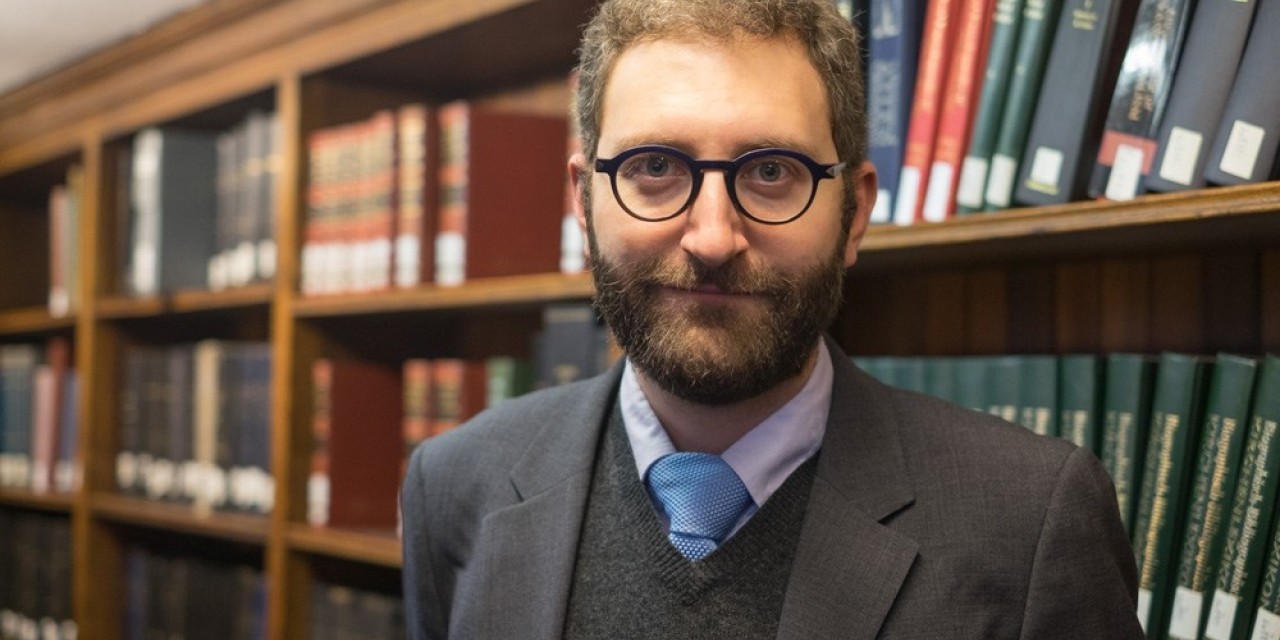Ryan Hagen, PhD Candidate in Sociology

Where did you grow up?
Wauwatosa, WI.
What drew you to your field?
I have always been drawn to questions of what holds society together and how organizations work, especially under conditions of stress. Why do people follow rules? Why do they tell the kinds of stories they tell? How do they decide who they want to be? How does anything ever get done?
People who know me often say they’re surprised to learn I’m an only child. But I think an interest in sociology is a big tell. Only children tend to be good social observers; since our family lives are so circumscribed growing up we have a strong motive and opportunity to theorize about how the rest of society gets along.
As for my current research: My first day of classes as a freshman at NYU was September 11, 2001. The experience of the attacks that day, and of growing up as New York recovered in the years afterward, left a big impression. I wanted to learn as much as I could about how people handled catastrophic change, how people helped each other through it, and ultimately about the professional and institutional structures that arose to anticipate future catastrophes.
How would you explain your current research subject to a high school student?
I study emergency managers, continuity managers, and contingency planners—a constellation of new professions that has emerged in the last thirty years or so to help governments and other large organizations prepare for disasters like hurricanes, disease outbreaks, and terrorist attacks. The nature of disaster is changing, in terms of frequency, complexity, and the range of hazards we face. I want to see how we can better understand those changes through close study of the professionals whose everyday work—and often, personal passion—is to engage the practical challenges of anticipating the next “big one.”
What resources or opportunities that Columbia provides are most important to you?
The Center for Teaching and Learning has been a huge help for me in terms of developing my pedagogy and exchanging ideas with graduate students outside of my discipline.
Is there a common misconception about a topic in your field that you wish you could correct?
The idea of “social construction” has been misunderstood as it has slipped beyond sociological discourse. Just because something is a social construct (like gender or race) doesn’t mean it isn’t real and consequential, only that it’s contingent, changeable—that it isn’t an inevitable outcome of some underlying biological or physical fact. Social constructs are of course incredibly powerful in their ability to shape people’s worldviews, their identities, and their actions. As W.I. Thomas wrote, if someone perceives something as real, it becomes “real in its consequences.”
Who are your favorite writers?
Herman Melville has inspired me for years. I make an annual pilgrimage to Mount Greylock in Massachusetts, which was Melville’s muse while he wrote Moby-Dick, and where he started his long friendship with Nathaniel Hawthorne. The working title for my dissertation (A Time of Thunder: Anticipating Disaster in New York City) is taken from Melville’s short story “The Lightning-Rod Man.” I find myself going back regularly to John McPhee’s The Control of Nature and Annals of a Former World for their exquisitely rendered dramas about human society and the natural world. I was so taken by Kathryn Schulz’s writing on the earthquake risk in the Pacific Northwest that I’ve read everything of hers that I can get my hands on. The newest addition to my fiction shelf is Claire-Louise Bennett’s mesmerizing short story collection Pond.
Who are your heroes in real life?
I’ve had a string of teachers between middle school and graduate school who have driven me to become a stronger scholar and a better person. I try to live up to their example whenever I get in front of a classroom or do work in the field.
What music have you been listening to lately?
Walter Martin‘s Arts & Leisure is one of my favorite new albums of the year.
What is your favorite blog or website?
Jon Rafman’s The Nine Eyes of Google Street View. It’s a collection of beautiful, bizarre, and haunting still frames pulled from the Street View feature in Google Maps. It’s a solid reminder of how doubly strange the world is: a record of uncanny moments captured by a no less uncanny fleet of nine-eyed robot cameras relentlessly photographing every roadway on the planet.
Where is your favorite place to eat on or around campus?
The Hungarian Pastry Shop. I love reading and writing there, having a slice of pumpkin pie and a coffee with a friend, or just chatting with a stranger over one of the cramped tabletops.
